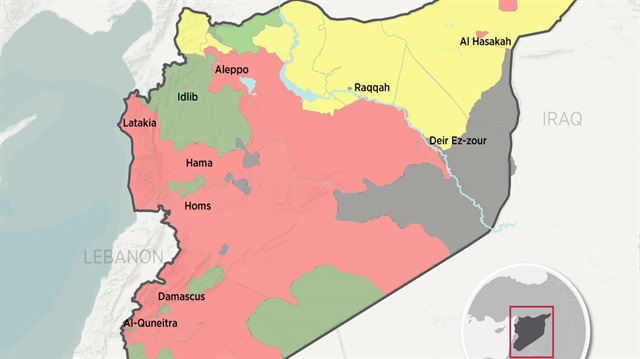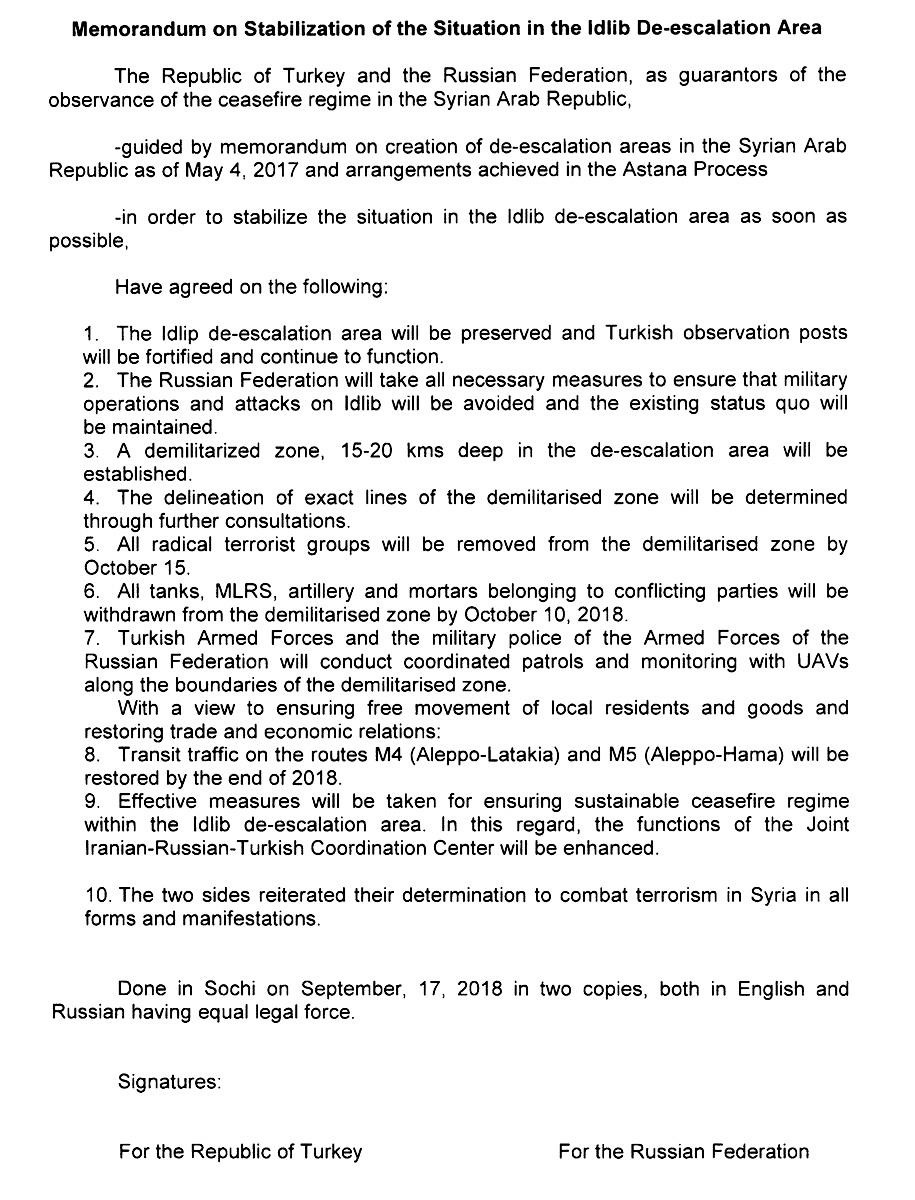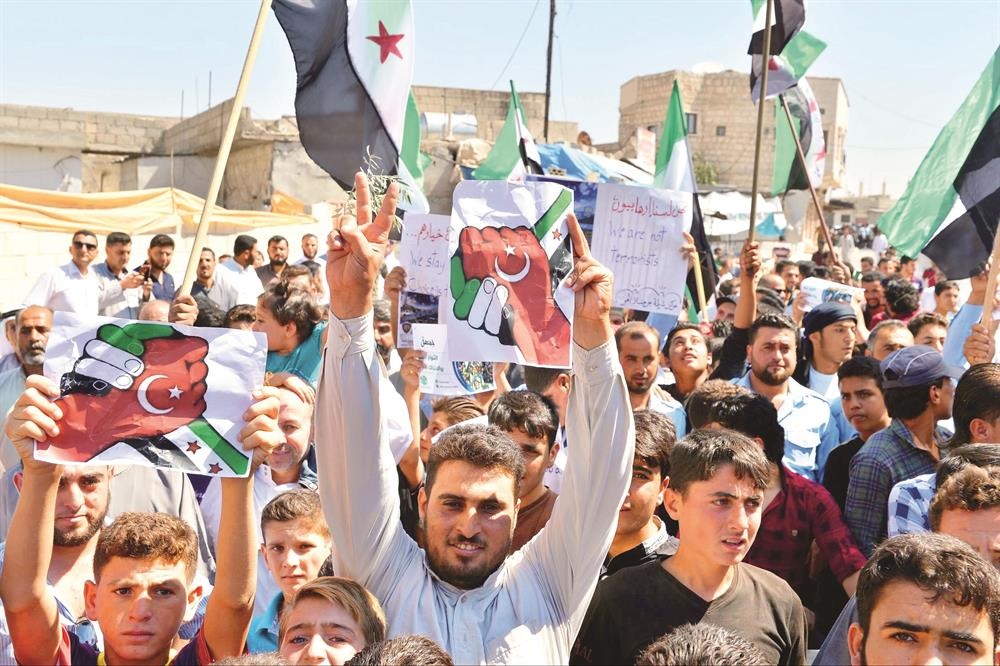
Syrian locals have lauded the deal reached by Turkey and Russia to protect Idlib from an offensive, dubbing the agreement a beacon of hope
The details of the memorandum of stabilization of the situation in Syria’s Idlib signed between Turkey and Russia in the resort town of Sochi have emerged. The agreement is comprised of 10 articles, and notes that Idlib will be a demilitarized de-escalation zone in which Turkish and Russian armed forces will conduct patrols.
Located near the Turkish border, Idlib is home to more than three million Syrians, many of whom fled from other cities following attacks by regime forces.
The Syrian regime announced plans last month to launch a major military offensive in the area, long controlled by various armed opposition groups.

A bilateral meeting between Turkish President Recep Tayyip Erdoğan and Russian President Vladimir Putin yielded the stabilization agreement, relieving millions of civilians who fled from the Assad regime’s brutal attacks and took refuge in Idlib.
The agreement reached between Turkey and Russia was a breakthrough after a trilateral summit including Iran failed to deliver a ceasefire deal.
The announcement of a demilitarized zone in Idlib, Syria’s last opposition stronghold, has become a beacon of hope for residents.
Residents were grappling with an atmosphere of crippling fear as talks of a looming offensive would lead to the "worst humanitarian catastrophe in the 21st century,” according to the UN.
“We see the results of the agreement as a good sign. Our hopes of returning to areas we were displaced from have been revived,” said Bedir Kaysi, who fled to Turkey from Homs as a result of regime attacks.
Abdusselam Hasan, the director of a hospital in Idlib, noted that Turkey was the only country which was taking into account the needs of the locals.

“The results of Sochi have been reflected positively on the field too. Locals have organized demonstrations of support in Binnish and Maarratmisrin,” says local Ahmet Zerzur, adding that both the Turkish and Free Syrian Army (FSA) flags would be unfurled at the rallies.
“The FSA flag is a sign of the continuation of the people’s revolt, and the Turkish flag is a sign of trust. We trust Turkey. We feel comfortable when Turkey is present in the region,” Zerzur stated.
Anton Mardasov, a non-resident expert at the Russian International Affairs Council (RIAC), dubbed the agreement reached in Sochi as a victory for both Erdoğan and Russia.
“This agreement is a victory for the stance of Erdoğan who did not let a military operation target Idlib. On the other hand, it is also a victory for Russia, which did not want to join a large scale military operation,” Mardasov said.
Denis Korkodinov, Russian military expert and political scientist, said that the Sochi deal ensured that radical groups would not threaten the Syria peace process.
“By forming a demilitarized zone, Ankara and Moscow have shown their alliance, which is based on high level political values,” he said.
“The Sochi agreement is extremely important and definitely a step in the right direction,” Panos Moumtzis, the UN’s humanitarian coordinator for the Syria crisis said, adding that it is “very important” to avoid military escalation, protect civilians, respect freedoms, and make sure humanitarian work and access is allowed in Syria.
Syria has been locked in a vicious civil war since early 2011 when the Assad regime cracked down on pro-democracy protests with unexpected ferocity.
Since then, hundreds of thousands of people have been killed and more than 10 million others were displaced, according to UN officials.






